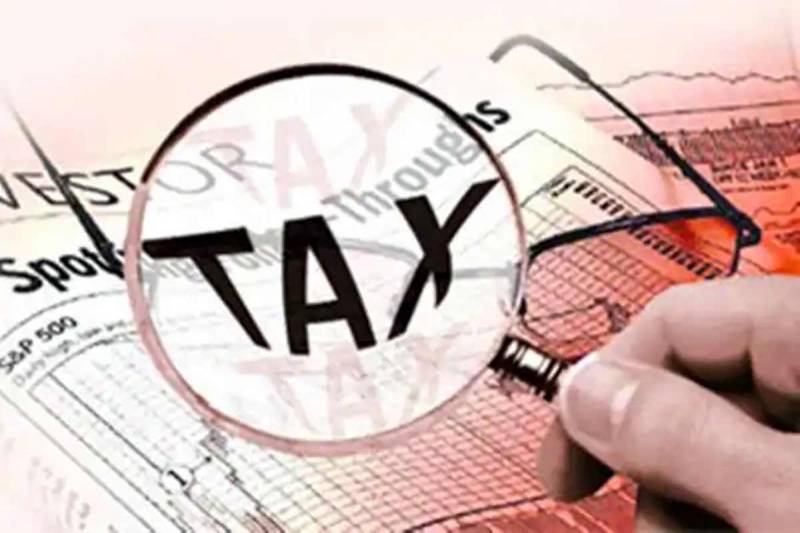New Delhi: The fineprint of the finance bill usually leaves taxpayers wondering what’s in store. Times of India EY Guide decodes how salaried employees can save more of their salary from the taxmen.
Here are the 10 things individual taxpayers should know:
1. Pre-filled ITR forms: ITR to have pre-filled information on dividend, interest & capital gains to ease compliance. To further ease filing of returns, details of capital gains from listed securities, dividend income, and interest from banks, post office, etc. will also come pre-filled.
2. EPF contribution: Interest on employee’s share of contribution to EPF on or after April 1, 2021 will be taxable at the stage of withdrawal if it exceeds 2.5 lakh in any year. This will lead to additional tax liability, especially for HNIs, who make higher contributions, and will also discourage voluntary provident fund (VPF) contributions. This along with taxation of aggregate employer’s contributions in excess of 7.5 lakh to EPF, NPS and superannuation fund and interest thereon introduced last year, may make EPF an even less attractive retirement scheme.
3. Dividend payments to REIT/ InvIT: For ease of compliance, the government proposed to make dividend payments to REIT/ InvIT exempt from TDS. Further, as the amount of dividend income cannot be estimated correctly by the shareholders for paying advance tax, the government proposed that advance tax liability on dividend income shall arise only after the declaration/payment of dividend.
In the previous budget, the government had abolished dividend distribution tax to incentivise investment and dividend was made taxable in the hands of shareholders. Amrish Shah, Partner, Deloitte India, said: “The abolition of TDS on dividend received by InVit/REIT would help in reducing the uncertainty around receiving refunds and blocking of cash. This will propel more investment through such business trusts.”
4. Higher TDS for non-filers of income tax returns: Budget 2021 proposed to insert a new section 206AB in the Income Tax Act as a special provision providing for higher rate for TDS for the non-filers of income tax return.
The proposed TDS rate in this section is higher of the followings rates:- Twice the rate specified in the relevant provision of the Act; or twice the rate or rates in force; or the rate of 5%. The term “Rate in force” means rate as per the Income Tax Act, 1961 or Relevant DTAA rate, whichever is more beneficial.
5. No income tax filing required for senior citizens above 75: In a bid to make individual taxpayers’ life easier, Finance Minister Nirmala Sitharaman, in the Union Budget 2021, announced that senior citizens above the age of 75 years, who only have pension and interest as a source of income will be exempted from filing the income tax returns. Senior citizens who are above 75 years of age are not exempted from paying tax.
However, they are exempted from filing an income tax return (ITR) if they fulfill certain conditions. The exemption from filing income tax returns would be available only in the case where the interest income is earned in the same bank where the pension is deposited.
6. Tax on ULIPs: Proceeds from ULIPs issued on or after February 1, 2021 will be taxable as capital gains if the annual premium exceeds 2.5 lakh in any year (except when received on death). Where a taxpayer pays premium for more than one ULIP (issued after February 1, 2021) exemption shall apply to those ULIPs where the aggregate premium does not exceed 2.5 lakh. With this proposal, the disparity between ULIPs and equity mutual funds has come to an end, which was a long pending demand of the mutual fund industry.
7. Advance tax: Taxpayers will not be required to estimate their dividend income while making advance tax payments. Advance tax will now be payable only when a dividend is declared or paid by the company. Till now taxpayers used to pay the interest due to underestimation of dividend income in advanced tax calculation. But with the recent proposal, taxpayers will get relief on this front.
8. LTC scheme notified: The Union Budget for 2021-22 has proposed to provide tax exemption to cash allowance in lieu of Leave Travel Concession (LTC). The scheme was announced by the government last year for individuals who were unable to claim their LTC tax benefit due to covid-related restrictions on travelling. Aditya Hans, Partner, Dhruva Advisors LLP, said: “Individual employees can still avail exemption for leave travel concession (LTC) of one-third of specified expenditure or INR 36,000 whichever is less, for the block of 2018-21, if they have incurred expenditure on purchase of goods/ services liable to GST @ 12% or more, provided the payment is made via non-cash mode and incurred during the period 12 October 2020 to 31 March 2021.”
9. The time limit for filing delayed (belated)/revised income-tax return to be reduced by 3 months: The last date to file a revised income-tax return or belated return on voluntary basis now stands at December 31 after the close of the financial year. The Times of India in a report mentioned that although this will reduce the overall tax compliance timelines, it may create practical difficulties for taxpayers with overseas income in claiming tax exemption or relief where such benefit is dependent on tax filing in the other country.
10. Tax holiday on affordable housing extended: FM Sitharaman announced the extension of tax holidays for the affordable housing segment. Additional interest deduction of Rs 1.5 lakh for loans taken to purchase an affordable house was announced in the 2019 budget. This relief will now be eligible for loans taken up to March 31, 2022. With an aim to keep up the supply of affordable houses, the Finance Minister proposed that affordable housing projects can avail a tax holiday for one more year, till March 31, 2022.


Comments are closed.